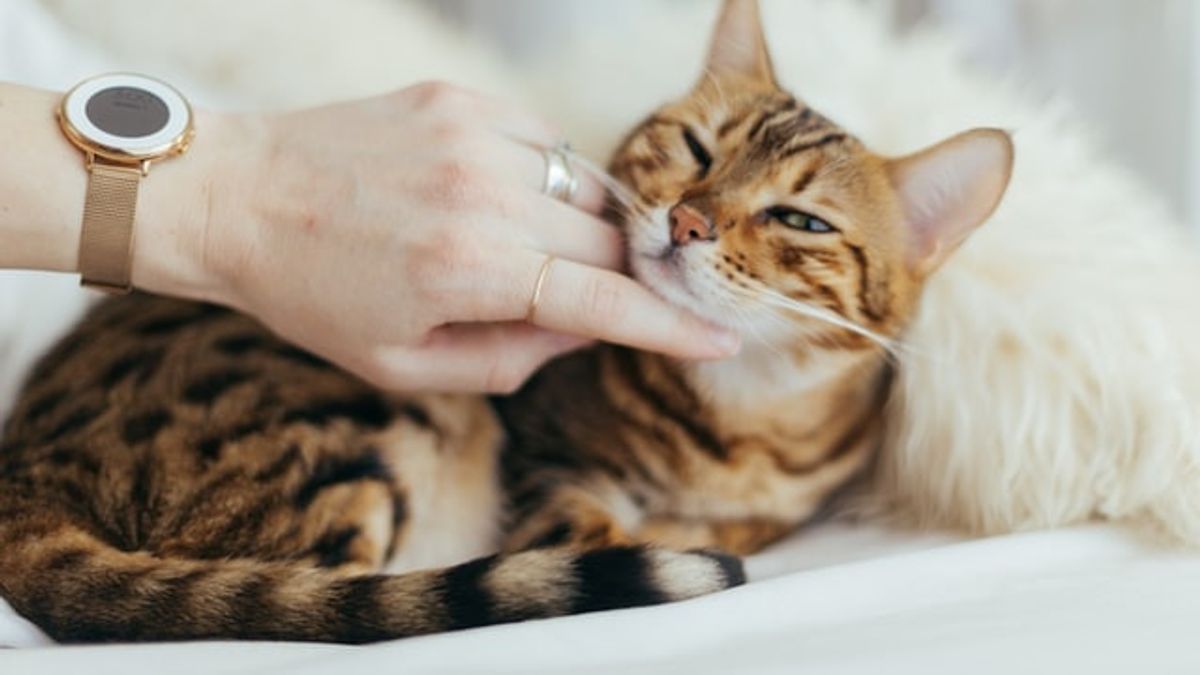JAKARTA - Research leader Dr. Francesca Solmi, from University College London's (UCL) Division of Psychiatry in the UK and her team recently reported their findings in the journal Psychological Medicine.
Cats are one of the most popular pets in the United States. There are at least more than 30 percent of homes maintain one cat. In addition to being friends, studies have also shown that cats and other pets can actually bring mental health benefits such as helping to reduce anxiety and stress, as well as improving overall psychological well-being.
However, some studies have stated otherwise. One study reported by Medical News Today in 2015, for example, linked childhood cat ownership with an increased risk of schizophrenia, bipolar disorder, and other mental health conditions in adulthood. But according to Dr. Solmi and his colleagues, there is not enough evidence to show that having a cat has a negative impact on a person's mental health.
 In a previous study, it was reported that the relationship between keeping a cat and mental health disorders was related to Toxoplasma gondii, a parasite that cats excrete through their feces. Contact with cat litter contaminated with this parasite through cleaning the litter tray, for example, can lead to T. gondii infection, known as toxoplasmosis. Evidently, more than 60 million people in America are believed to be infected with T. gondii.
In a previous study, it was reported that the relationship between keeping a cat and mental health disorders was related to Toxoplasma gondii, a parasite that cats excrete through their feces. Contact with cat litter contaminated with this parasite through cleaning the litter tray, for example, can lead to T. gondii infection, known as toxoplasmosis. Evidently, more than 60 million people in America are believed to be infected with T. gondii.
Moreover, pregnant women are thought to be more susceptible to T. gondii infection, which may have serious implications for their offspring, such as birth defects. Studies also suggest that T. gondii infection in newborns may increase the risk of mental health disorders later in life.
Meanwhile, many recent studies show that children who grow and develop by keeping cats will not be prone to mental illness. Dr. Solmi analyzed data from the Avon Longitudinal Study of Parents and Children (ALSPAC), identifying 4,676 children born between 1991 and 1992 whose mothers kept cats during pregnancy. Thereafter, each child underwent an assessment for psychotic symptoms at 13 and 18 years of age.
Initially, the researchers found a small association between childhood cat ownership and psychotic symptoms at 13 years of age. However, this relationship disappeared when the team took other factors into account.
"Once we controlled for factors such as household density and socioeconomic status, the data showed that cats were not to blame," explains Dr. Solmi. "Previous studies reporting the relationship between cat ownership and psychosis have failed because mental health is also closely related to welfare factors," continued Dr. Solmi.
In addition, the team also said the previous study was relatively small, had less accurate data, and did not follow the family for a long time. And the latest study by Dr. Solmi overcomes this shortcoming.
The English, Chinese, Japanese, Arabic, and French versions are automatically generated by the AI. So there may still be inaccuracies in translating, please always see Indonesian as our main language. (system supported by DigitalSiber.id)













